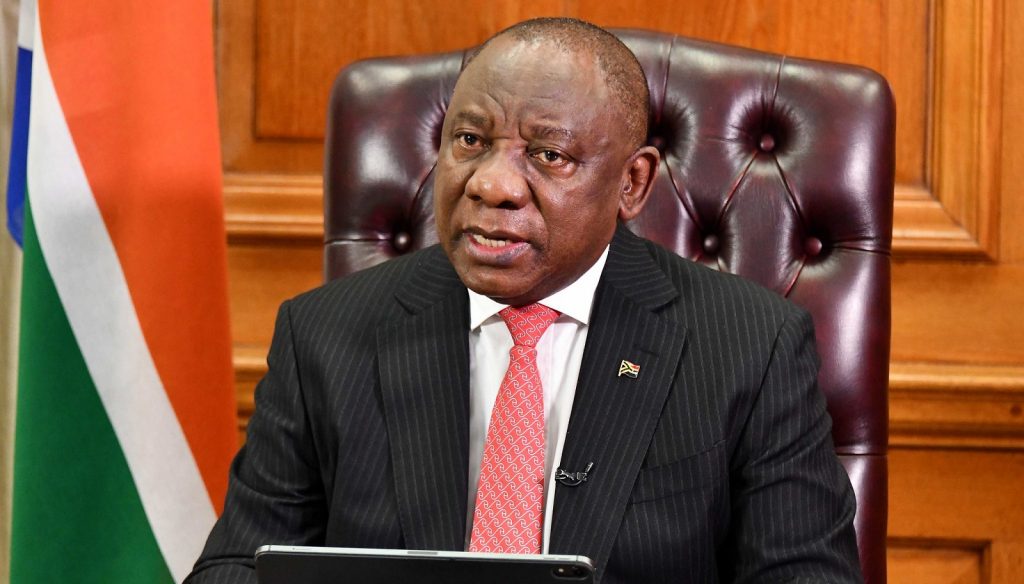President Cyril Ramaphosa has started a self-quarantine period after exposure to someone with a positive COVID-19 diagnosis at a fundraiser.
The Presidency made the announcement on Wednesday morning (28 October).
No ad to show here.
“President Cyril Ramaphosa has begun a period of self-quarantine following the positive COVID-19 diagnosis of a guest at a dinner attended by the President on Saturday, 24 October 2020,” the statement from the Presidency says.
The exposure occurred at a fundraising dinner for the Adopt-a-School foundation — a partner of the Cyril Ramaphosa Foundation.
According to the Presidency, 35 guests attended the fundraiser in Johannesburg.
“The event adhered stringently to COVID-19 protocols and directives on screening, social distancing and the wearing of masks. As was the case with all guests, the President himself removed his mask only when dining and addressing the guests,” the Presidency says.
Guests to the fundraiser received news on Tuesday, 27 October, that one of the attendees had developed symptoms. The guest experienced symptoms a day after the event. On Monday, the guest received a positive test result for COVID-19.
While President Ramaphosa has not shown any symptoms, he is embarking on a self-quarantine as a precautionary measure.
“The President is showing no symptoms at this time and will, in line with COVID-19 health advice, be tested should symptoms manifest,” the Presidency says.
Warnings of second COVID-19 wave in South Africa as Ramaphosa quarantines
The news comes amid warnings of a second wave of COVID-19 in South Africa.
Health Minister Zweli Mkhize and his wife tested positive for the virus on 18 October.
Health officials have also urged the public to remain vigilant despite the country being at lockdown Level 1.
If you want to keep up-to-date with the latest local COVID-19 numbers, visit the Coronavirus South Africa portal.
Meanwhile, you can get an overview of national COVID-19 trends in Google Maps.
Feature image: GCIS
Read more: COVID Alert SA: Your questions about South Africa’s contact-tracing app answered
